Related Research Articles
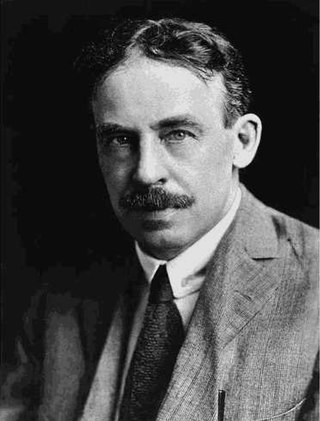
William Morton Wheeler was an American entomologist, myrmecologist and professor at Harvard University.

Sir D'Arcy Wentworth Thompson CB FRS FRSE was a Scottish biologist, mathematician and classics scholar. He was a pioneer of mathematical and theoretical biology, travelled on expeditions to the Bering Strait and held the position of Professor of Natural History at University College, Dundee for 32 years, then at St Andrews for 31 years. He was elected a Fellow of the Royal Society, was knighted, and received the Darwin Medal and the Daniel Giraud Elliot Medal.

Edward Sylvester Morse was an American zoologist, archaeologist, and orientalist. He is considered the "Father of Japanese archaeology."

Frederic Ward Putnam was an American anthropologist and biologist.
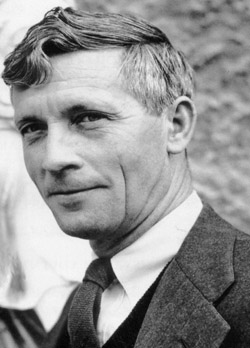
Homer Armstrong Thompson was a Canadian classical archaeologist of the twentieth century, specializing in ancient Greece. As a fellow of the American School of Classical Studies at Athens, Thompson led the excavations of the Athenian Agora from May 25, 1931 until 1970. He was married to a fellow archaeologist, Dorothy Burr Thompson.

John Merle Coulter, Ph. D. was an American botanist and educator. In his career in education administration, Coulter is notable for serving as the president of Indiana University and Lake Forest College and the head of the Department of Botany at the University of Chicago.

Alfred Marston Tozzer was an American anthropologist, archaeologist, linguist, and educator. His principal area of interest was Mesoamerican, especially Maya, studies. He was the husband of Margaret Castle Tozzer and father of figure skating champion Joan Tozzer.
Norman Dennis Newell was a professor of geology at Columbia University, and chairman and curator of invertebrate paleontology at the American Museum of Natural History in New York City.
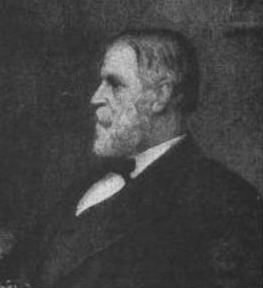
William C Carruthers was a British botanist and paleobotanist.
Stephen Douglas Houston is an American anthropologist, archaeologist, epigrapher, and Mayanist scholar, who is particularly renowned for his research into the pre-Columbian Maya civilization of Mesoamerica. He is the author of a number of papers and books concerning topics such as the Maya script, the history, kingships and dynastic politics of the pre-Columbian Maya, and archaeological reports on several Maya archaeological sites, particularly Dos Pilas and El Zotz. In 2021, National Geographic noted that he participated in the correct cultural association assigned to a half-size replica discovered at the Tikal site of the six-story pyramid of the mighty Teotihuacan culture, which replicated its Citadel that includes the original Feathered Serpent Pyramid.
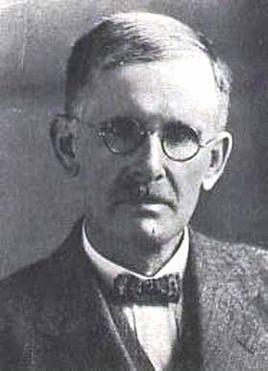
John Hewitt was a South African zoologist and archaeologist of British origin. He was born in Dronfield, Derbyshire, England, and died in Grahamstown, South Africa. He was the author of several herpetological papers which described new species. He also described new species of spiders and other arachnids.
Patrick Vinton Kirch is an American archaeologist and Professor Emeritus of Integrative Biology and the Class of 1954 Professor of Anthropology at the University of California, Berkeley. He is also the former Curator of Oceanic Archaeology in the Phoebe A. Hearst Museum of Anthropology, and director of that museum from 1999 to 2002. Currently, he is professor in the department of anthropology at the University of Hawai'i Manoa, and a member of the board of directors of the Bishop Museum.
Roland A. Steiner was a physician, planter, folklorist, and amateur archaeologist who resided in Georgia for most of his life. His archaeological pursuits in Georgia are his most prominent lifetime achievement. He also made significant contributions in the nascent disciplines of cultural anthropology and folklore.
Jesse David Jennings was an American archaeologist and anthropologist and founding director of the Natural History Museum of Utah. Based at the University of Utah, Jennings is best known for his work on desert west prehistory and his excavation of Danger Cave near Utah's Great Salt Lake. Considered an exacting academic scholar and author, he was known for conducting systematic excavations with order and cleanliness.
Michael Edward Moseley was an American archaeologist and anthropologist at the University of Florida.
Joe Ben Wheat (1916–1997) was an American archaeologist, curator, teacher, and author known for his expertise on woven textiles produced by the Navajo and other Native American tribes in Arizona, New Mexico, and Colorado. His research also focused on Mogollon, Anasazi, Great Plains Paleo-Indian, and African Paleolithic archaeology.
John Dow Fisher Gilchrist (1866–1926) was a Scottish ichthyologist, who established ichthyology as a scientific discipline in South Africa. He was instrumental in the development of marine biology in South Africa and of a scientifically based local fishing industry.
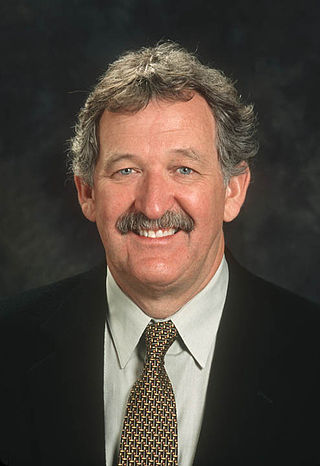
Bruce D. Smith is an American archaeologist and curator at the Smithsonian Institution's National Museum of Natural History who primarily focuses on the interaction of humans with their environment, especially the origins of agriculture in eastern North America agricultural complex.

Elizabeth Jean "Betsy" Reitz is a zooarchaeologist and Professor Emerita in the Georgia Museum of Natural History and the Department of Anthropology at the University of Georgia. She was born in 1946 in Lake Alfred, Florida. She attended Florida Presbyterian College from 1966 to 1967. She received her BA (1969), MA (1975), and her PhD (1979) in Anthropology from the University of Florida. Her dissertation was directed by Elizabeth Wing. Reitz is a member of the International Council for Archaeozoology's Committee of Honor. In 2012, she was elected a Fellow of the American Association for the Advancement of Science, and in 2014, she was named to the American Academy of Arts and Sciences. She was the recipient of the 2016 Fryxell Award for Interdisciplinary Research in Archaeology, given by the Society for American Archaeology. The Fryxell Award is given to scholars who have made significant contributions in the application of the zoological sciences in archaeology. She is a member of the Committee of Honor of the International Council for Zooarchaeology (ICAZ). In 2019, Reitz was awarded the Southeastern Archaeological Conference's Lifetime Achievement Award.
Clark Spencer Larsen is an American biological anthropologist, author, and educator. His work focuses on bioarchaeology, the study of human remains from archaeological settings. Although his interests span the entire record of human evolution, his research largely pertains to the last 10,000 years, a period of dynamic change in health, well-being, and lifestyle, much of which relates to population increase, overcrowding, and nutritional decline that co-occurred with the transition from hunting and gathering to agriculture, creating living conditions that humans are grappling with to the present day.
References
- ↑ "Victor Thompson". University of Georgia, Institute of Native American Studies. Retrieved 16 December 2024.
- ↑ "Victor Thompson". University of Georgia, Department of Anthropology. Retrieved 16 December 2024.
- ↑ "Victor D. Thompson". University of Georgia, Laboratory of Archaeology. Retrieved 16 December 2024.
- ↑ "2023 AAAS Fellows". American Association for the Advancement of Science. Retrieved 16 December 2024.
- ↑ "Victor Thompson". Georgia Museum of Natural History. Retrieved 16 December 2024.
- ↑ "Thompson to lead the Georgia Museum of Natural History". Franklin College of Arts and Sciences, University of Georgia. 21 March 2024. Retrieved 16 December 2024.